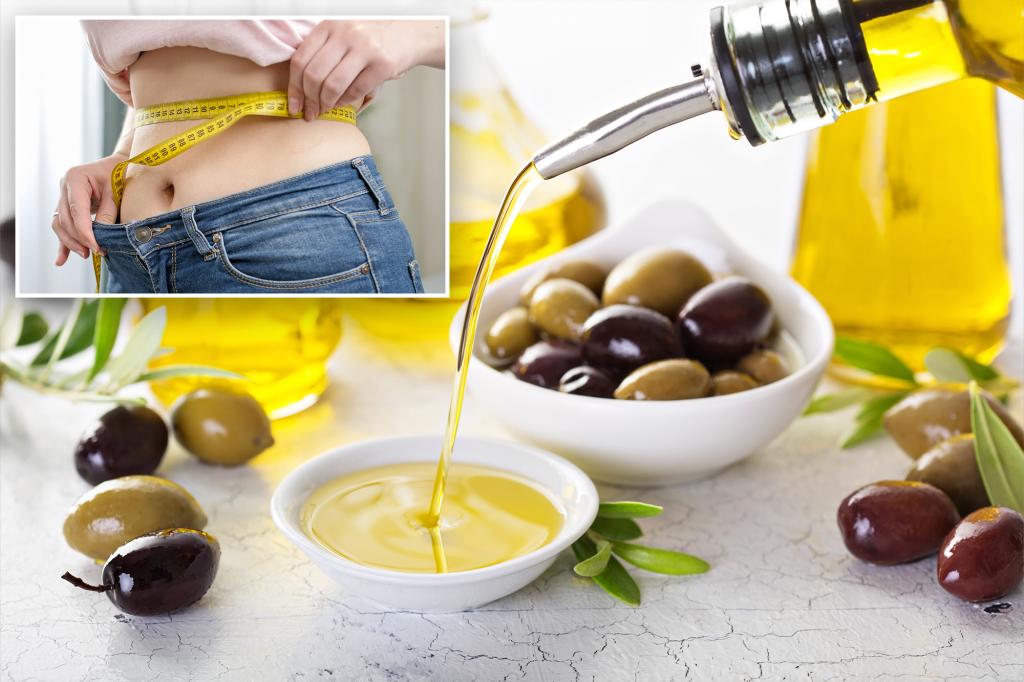They say olive oil is liquid gold — but too much might be making the wrong part of your body rich.
A new study published in the journal Cell Reports has found that a diet high in oleic acid — the monounsaturated fat famously found in olive oil — could be fueling obesity by supercharging the growth of fat cells.
“We know that the types of fat that people eat have changed during the obesity epidemic,” Michael Rudolph, an assistant professor of biochemistry and physiology at the University of Oklahoma College of Medicine, said in a press release.
“We wanted to know whether simply overeating a diet rich in fat causes obesity, or whether the composition of these fatty acids that make up the oils in the diet is important. Do specific fat molecules trigger responses in the cells?”
Rudolph and his team fed mice a series of specialized diets, each rich in a different type of fat, including those found in coconut oil, peanut oil, milk, lard and soybean oil.
Only oleic acid — the type found in abundance in olive oil and many processed foods — triggered a spike in the proliferation of precursor fat cells by boosting a growth protein called AKT2 and suppressing a regulatory protein known as LXR.
In short: more fat cells, more fat storage and more inches to your waistline.
“You can think of the fat cells as an army,” Rudolph said.
“When you give oleic acid, it initially increases the number of ‘fat cell soldiers’ in the army, which creates a larger capacity to store excess dietary nutrients. Over time, if the excess nutrients overtake the number of fat cells, obesity can occur, which can then lead to cardiovascular disease or diabetes if not controlled.”
The researchers admit that most people don’t eat isolated fats in a vacuum — a latte here, a salad there and a burger for dinner all mix different fatty acids.
But diets dominated by oleic acid, particularly from ultra-processed food, may become a problem for your pumper.
“I think the take-home message is moderation and to consume fats from a variety of different sources,” Rudolph said.
“Relatively balanced levels of oleic acid seem to be beneficial, but higher and prolonged levels may be detrimental. If someone is at risk for heart disease, high levels of oleic acid may not be a good idea.”
Before you chuck your olive oil into the trash, bear in mind that it remains one of the healthiest fats around — when consumed in reasonable amounts.
It’s packed with antioxidants and has been linked to improved heart health, brain function and even reduced cancer risk.
Other studies have shown that daily olive oil intake may reduce the risk of dementia and improve blood pressure when swapped in for butter.
So olive oil still reigns supreme — but it turns out even the good guys can send in too many troops.
Read the full article here


